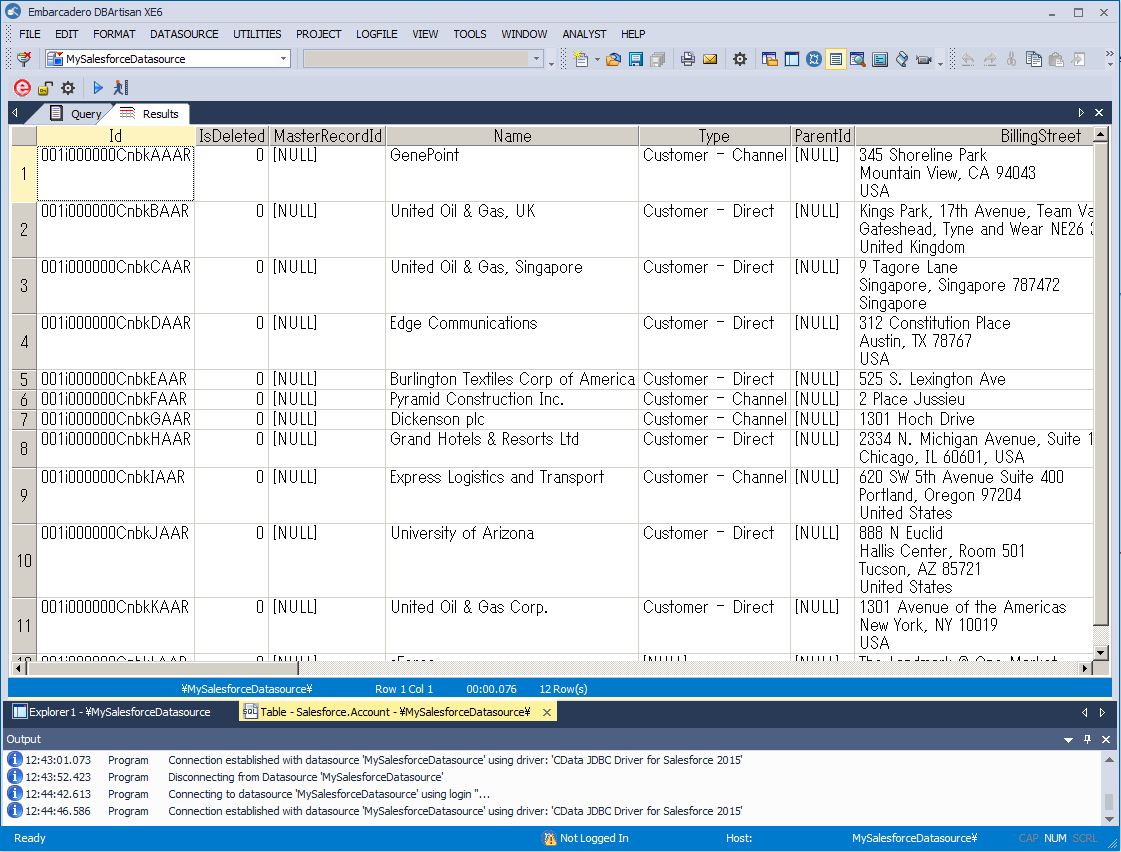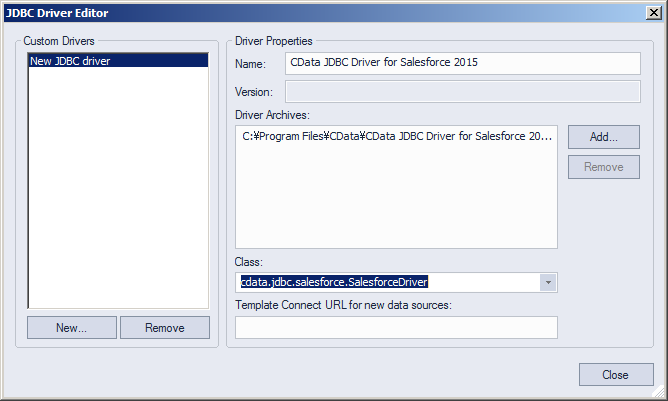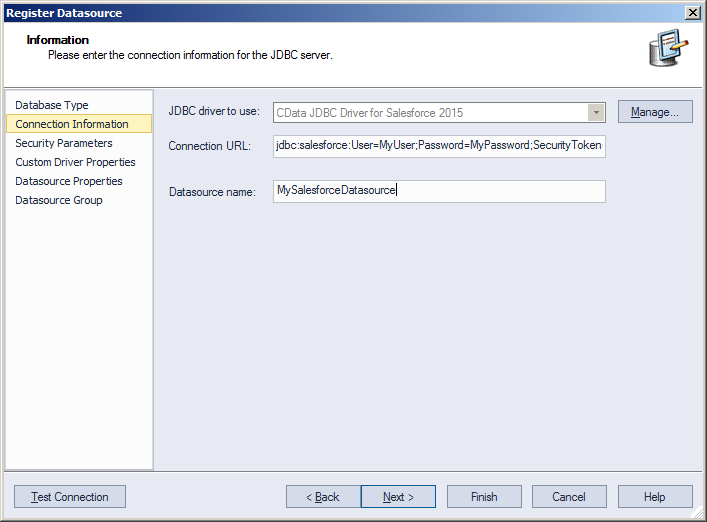Discover how a bimodal integration strategy can address the major data management challenges facing your organization today.
Get the Report →Manage Clio Data in DBArtisan as a JDBC Source
Use wizards in DBArtisan to create a JDBC data source for Clio.
The CData JDBC Driver for Clio seamlessly integrates Clio data into database management tools like DBArtisan by enabling you to access Clio data as a database. This article shows how to create a JDBC source for Clio in DBArtisan. You can then edit data visually and execute standard SQL.
Integrate Clio Data into DBArtisan Projects
Follow the steps below to register Clio data as a database instance in your project:
- In DBArtisan, click Data Source -> Register Datasource.
- Select Generic JDBC.
- Click Manage.
- In the resulting dialog, click New. Enter a name for the driver and click Add. In the resulting dialog, navigate to the driver JAR. The driver JAR is located in the lib subfolder of the installation directory.
![The JDBC driver definition in the Register Datasource wizard. (Salesforce is shown.)]()
-
In the Connection URL box, enter credentials and other required connection properties in the JDBC URL.
Start by setting the Profile connection property to the location of the Clio Profile on disk (e.g. C:\profiles\Clio.apip). Next, set the ProfileSettings connection property to the connection string for Clio (see below).
Clio API Profile Settings
Clio uses OAuth-based authentication.
First, register an OAuth application with Clio. You can do so by logging to your Developer Account and clicking the Add button. Enter details and select the scope of your application here - these details will be shown to Clio users when they're asked to authorize your application. Your Oauth application will be assigned a client id (key) and a client secret (secret). Additionally you will need to set the Region in ProfileSettings connection property.
After setting the following connection properties, you are ready to connect:
- AuthScheme: Set this to OAuth.
- InitiateOAuth: Set this to GETANDREFRESH. You can use InitiateOAuth to manage the process to obtain the OAuthAccessToken.
- OAuthClientId: Set this to the client_id that is specified in you app settings.
- OAuthClientSecret: Set this to the client_secret that is specified in you app settings.
- CallbackURL: Set this to the Redirect URI that is specified in your app settings.
- Region: Set this in ProfileSettings to your Clio geographic region. Defaults to app.clio.com.
Built-in Connection String Designer
For assistance in constructing the JDBC URL, use the connection string designer built into the Clio JDBC Driver. Either double-click the JAR file or execute the jar file from the command-line.
java -jar cdata.jdbc.api.jarFill in the connection properties and copy the connection string to the clipboard.
![Required JDBC connection properties in the Register Datasource wizard. (Salesforce is shown.)]()
Below is a typical connection string:
jdbc:api:Profile=C:\profiles\Clio.apip;ProfileSettings='Region=your_region';Authscheme=OAuth;OAuthClientId=your_client_id;OAuthClientSecret=your_client_secret;CallbackUrl=your_callback_url; - Finish the wizard to connect to Clio data. Clio entities are displayed in the Datasource Explorer.
You can now work with Clio data as you work with any other database. See the driver help documentation for more information on the queries supported by the Clio API.









